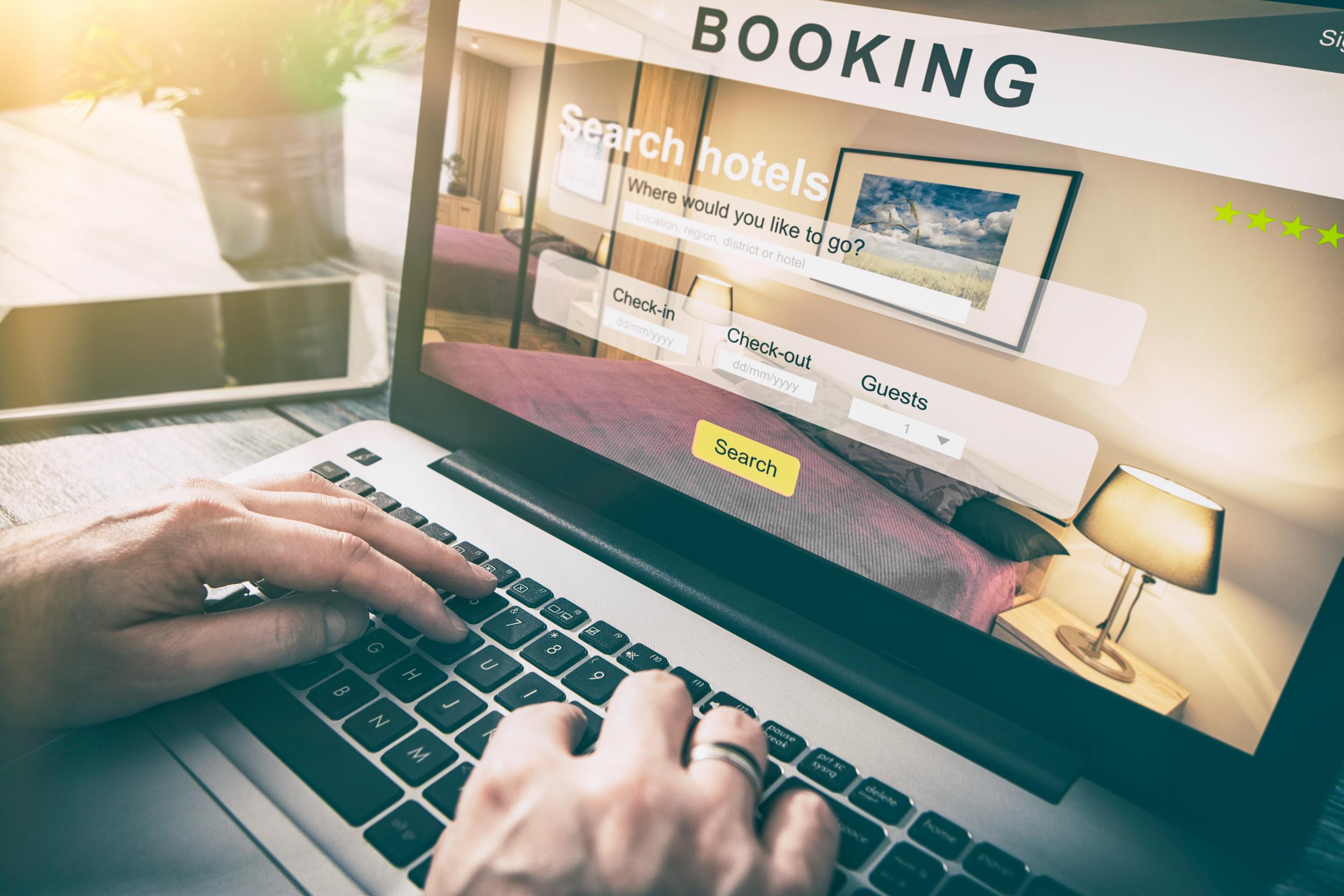How to avoid scams when booking your next holiday
After James McAvoy almost got duped by a fake website, here's how to dodge scammers, con artists and fakers when planning your next trip

Your support helps us to tell the story
From reproductive rights to climate change to Big Tech, The Independent is on the ground when the story is developing. Whether it's investigating the financials of Elon Musk's pro-Trump PAC or producing our latest documentary, 'The A Word', which shines a light on the American women fighting for reproductive rights, we know how important it is to parse out the facts from the messaging.
At such a critical moment in US history, we need reporters on the ground. Your donation allows us to keep sending journalists to speak to both sides of the story.
The Independent is trusted by Americans across the entire political spectrum. And unlike many other quality news outlets, we choose not to lock Americans out of our reporting and analysis with paywalls. We believe quality journalism should be available to everyone, paid for by those who can afford it.
Your support makes all the difference.If you’ve ever fallen victim to a holiday scam, you’re in good company.
Actor James McAvoy revealed on Instagram last week that he nearly parted with £10,000 on a scam booking site after trying to book a family holiday at the Ritz Carlton Abama hotel in Tenerife.
McAvoy was on the brink of transferring the sum to a man named Joaquin, who purported to be from the respected hotel chain, when his suspicions were aroused by the fact the deal seemed simply too good to be true.
After double-checking with a travel agent, he discovered this was the case.
When even celebrities aren’t immune from such swindles, how can the average holidaymaker stay safe when booking their next trip?
TravelSupermarket reveals its top tips for staying safe online.
Use a credit card to stay protected
Travellers paying for goods with a credit card, rather than a debit card, are covered by Section 75 of the Consumer Credit Act for purchases of £100 or more. This means that if your travel firm goes bust, as recently happened with Primera Air, you should be reimbursed.
Those without a credit card are advised to pay for the entirety of their holiday using a debit card. Both Visa and Mastercard offer a chargeback programme that generally pays out in full should your holiday plans collapse prior to departure.
Ensure your holiday is ATOL-protected
Operated by the Civil Aviation Authority, ATOL-protection primarily applies to package holidays and some flight bookings. This established body ensures that holidaymakers are entitled to a full refund and replacement travel if, for example, a hotel or travel agent goes bust.
Some fraudulent sites may claim to be ATOL-protected, but travellers can check whether a business’s ATOL membership is authentic by searching by ATOL number, registered business name or trading name on the ATOL website.
Customers who book their flights and accommodation separately may not be covered by this scheme, however. For more information, check out the ATOL website.
Check hotel reviews – do they seem legitimate?
If you’re uncertain that a website is legitimate, it’s worth researching customer reviews of an establishment.
Hotels or restaurants with a series of authentic reviews might be the deciding factor in choosing whether or not to proceed with a booking.
Approach reviews with caution, however. A survey from Reevoo suggests that more than one third of online reviews are unreliable and could potentially be supporting fraudulent sites.
Assessing the level of detail left by patrons, including specific information about an establishment, as opposed to simply ‘very good’, may help you differentiate between hoax and authentic reviews.
Learn how to spot a fake website
Develop your detective skills and learn how to spot a fake website. Is the overall quality of the site below par? This could include clumsy spelling mistakes or fuzzy logos.
James McAvoy described the scam website he was browsing as “very convincing – even better than the [actual] Ritz Carlton Abama”, however. The difference in this instance was the cost. If a website is offering a holiday for a considerably cheaper price than elsewhere, this should be a red flag.
Don’t forget the golden rule: if something seems too good to be true, it often is. Treat bargain offers with suspicion, cross-reference your searches elsewhere on the web and seek out meaningful reviews of establishments before parting with your hard-earned cash.
If you do fall foul to scammers, remember that you’re not alone. Report your experiences through the official channel at actionfraud.police.uk
Join our commenting forum
Join thought-provoking conversations, follow other Independent readers and see their replies
Comments